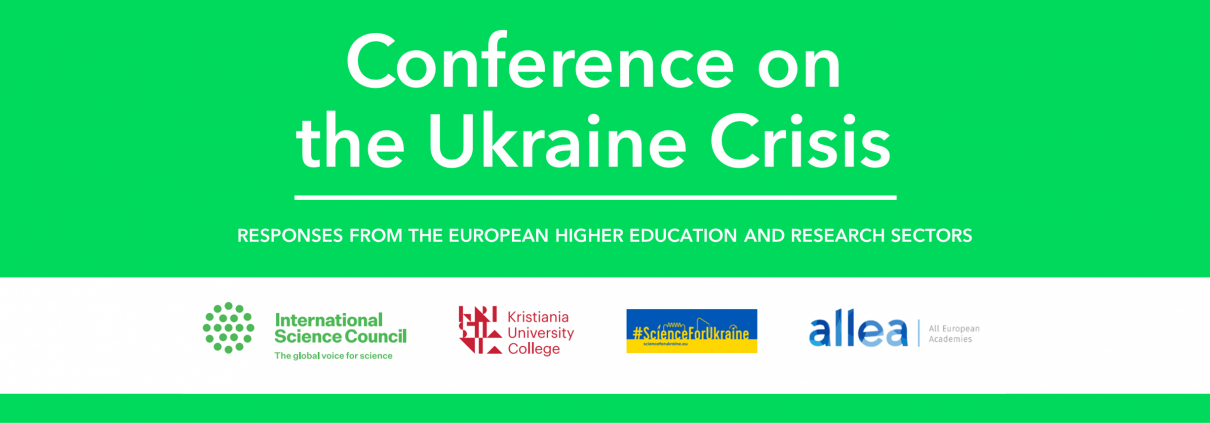New Report: Responses from the European Higher Education to the Ukraine Crisis
The report includes important lessons and recommendations on how to support the science sector in Ukraine and in other countries affected by conflict and disaster.
The report, published on 31 August 2022, summarises the discussions of the conference ‘The Ukraine Crisis: Responses from the European Higher Education and Research Sectors,’ organised jointly between ALLEA, Science for Ukraine, Kristiania University College and the International Science Council (ISC) in June 2022.
The report highlights 7 key principles for national governments, multilateral organisations and the global science sector to support the academic system in countries that have been affected by conflict:
- RESPONSIBILITY: Governments, the higher education, scientific and research community must work together to deliver their national commitments to recognizing and supporting the right to education and science within their country.
- INTERNATIONAL SOLIDARITY: Governments, the higher education, scientific and research community must work together to deliver their national commitments for supporting the participation of at-risk, displaced and refugee scholars and researchers in their home country or a third country if necessary.
- OPENNESS: The international scientific and research community should empower conflict-affected science systems with the means to rebuild by adopting the UNESCO recommendation on open science.
- INCLUSION: All stakeholders must ensure that programmes and opportunities are designed inclusively to avoid exclusion of specific groups of at-risk, displaced and refugee scholars and researchers based on characteristics such as language, family status, gender, disability, cultural background and psychosocial wellbeing.
- MOBILITY: Stakeholders must work together to develop global mechanisms and coordination structures that facilitate secure academic and scientific mobility – to ensure the potential of displaced and refugee scholars and students is not lost.
- FLEXIBILITY: All stakeholders must recognize the evolving needs of academics, researchers and students by designing more flexible programmatic and funding models that enable changes in location and allow for both remote and in-person participation.
- PREDICTABILITY: Stakeholders must work together to develop sustainable frameworks within and between national scientific, higher education and research systems that enable a more predictable and effective approach to the phases of preparedness, response and rebuilding in the aftermath of conflict or disaster.
The conference brought together over 150 stakeholders from across Europe. Over half of the attendees came from Ukraine, including the Minister of Education and Science for Ukraine, the Honourable Serhiy Shkarlet, who delivered a keynote speech. Participants reflected on the assistance provided to-date for academics, scientists, researchers and students who are at-risk, displaced or refugees as a result of the war in Ukraine, and put forward recommendations for mid- to long-term support, including rebuilding of the higher education and research sectors after conflict.
In launching the report, ALLEA President Antonio Loprieno remarked that “we are now six months into the invasion and there is a real need to remind people that the crisis has not gone away, so the report is very timely.”
The report will be shared at the forthcoming Science|Business Network Conference ‘United Europe: Widening R&I cooperation in times of war’, which will take place on 7 September 2022.
—
Download the conference report
 Conference on the Ukraine Crisis: Responses from the European Higher Education and Research Sectors
Conference on the Ukraine Crisis: Responses from the European Higher Education and Research Sectors


